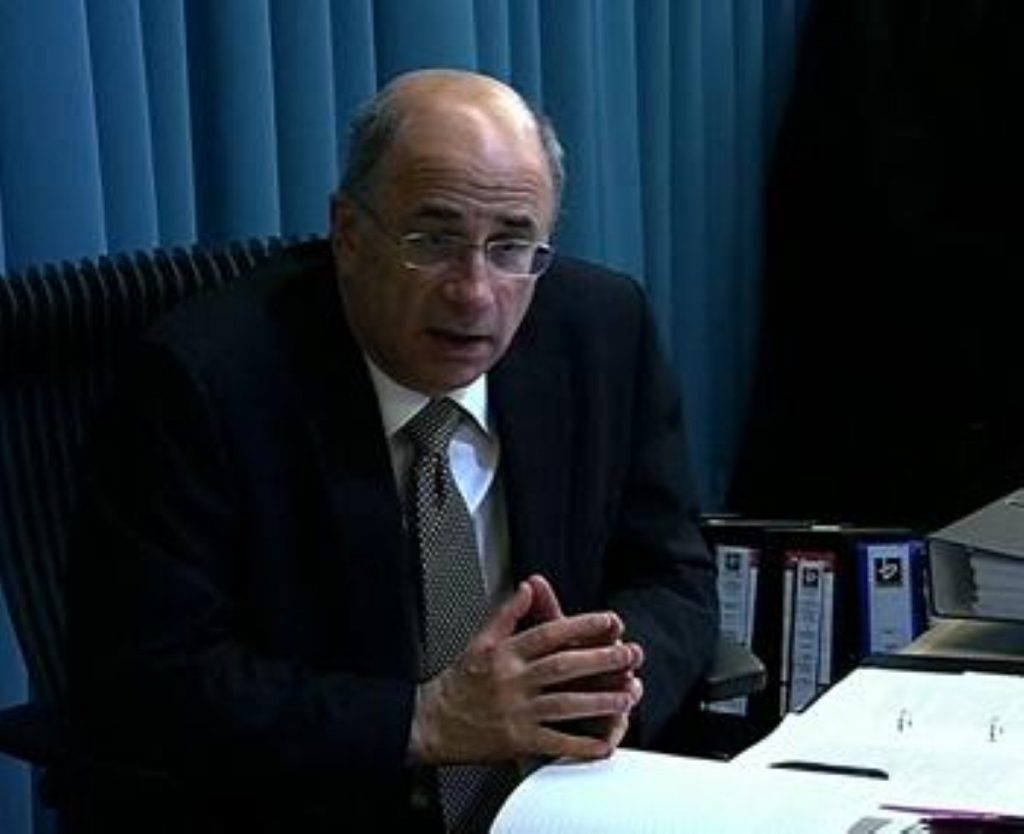Leveson locks horns with parliament
Critical evidence sessions set to decide the political fate of culture secretary Jeremy Hunt may not take place if parliament interferes with Lord Justice Leveson's "process", the judge has warned.
Labour's deputy leader Harriet Harman appeared to back down quickly, tweeting that parliamentary questions on the matter would be suspended until after key figures give evidence to the Leveson inquiry by the end of the month.
In a lengthy statement this afternoon the judge warned the Commons off attempting to see and debate evidence about allegations that Mr Hunt acted inappropriately during News Corporation's takeover bid for BSkyB.
The culture secretary's special adviser Adam Smith has already resigned after inappropriate contacts with Frederic Michael, News Corp's public affairs chief for Asia and Europe.


Both are due before the Leveson inquiry later this month to explain the nature of their contacts at a time when Mr Hunt was exercising a quasi-judicial role over the appropriateness of the bid.
But Lord Justice Leveson today warned that attempts by opposition MPs to make their evidence public before they are questioned by his inquiry could result in him abandoning the grillings altogether.
"If… the evidence were to have been forced into the public domain and be the subject of argument and debate in advance of the witnesses giving evidence, my immediate reaction would be to make it unfair to submit the witnesses to evidence before the inquiry," Lord Justice Leveson said.
"That would inevitably require them to answer not only the concerns of the inquiry but also those of every other analyst and commentator whether from the political or press arenas.
"My attempt to maintain political neutrality would have failed. In that event I might well conclude it is simply not appropriate to look at this evidence at all."
That would be a blow for David Cameron, who is effectively using the scrutiny of the Leveson inquiry's questioning sessions to establish whether he will be forced to sack Mr Hunt.
The judge cited points of order raised in the Commons chamber yesterday afternoon by shadow culture secretary Harriet Harman. She told the Speaker: "Of course the secretary of state must give his evidence to Leveson whenever he is called to do so, but surely he cannot use that as an excuse to evade his accountability to this House."
Tory grandee Edward Leigh, a former chair of the public accounts committee, went even further, complaining that inquiries are "given everything" whereas select committees are constantly "fobbed off".
"Surely the time has come to proclaim this truth: this House is supreme and sovereign, and we should get everything first," Mr Leigh demanded.
Lord Justice Leveson said "one reading" of Mr Leigh's statement "might be a call for all their evidence first to be given to parliament and then to the inquiry".
Such a move would clash with the "sufficient respect for my process" he wanted to see, he said, adding: "I hope that allowing the inquiry to proceed as it plans will not amount to a serious inconvenience either to parliament or to the political process generally. On the contrary, I hope the process I have put in place is well-placed to assist both. The present problem arises only out of sequencing the evidence."
Ms Harman responded by tweeting:" Leveson to quiz Smith & Michel as well as Hunt by end May. After that we'll continue PQs [parliamentary questions] if necessary."
The judge also subtly warned the government not to leak any evidence it becomes aware of. Lawyers representing senior Cabinet ministers have advance sight of evidence after Lord Justice Leveson granted them 'core participant' status.
"I would be very concerned if the advantage obtained by core participants of early sight of statements were used to affect the fairness which I am seeking to achieve," he said.

